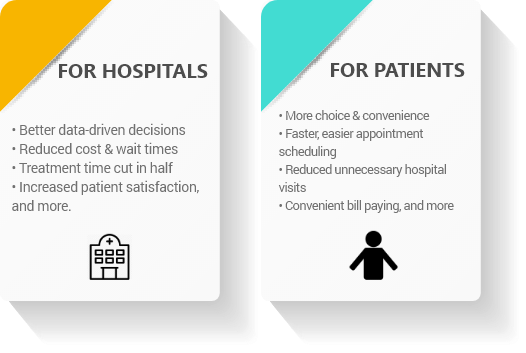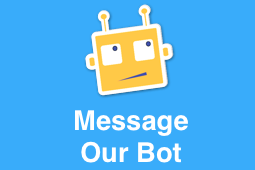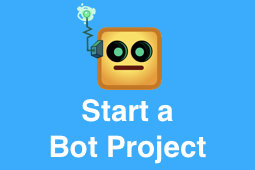
These days, situations where people are looking for diagnoses on the Internet and then the results scare them, happens very often.
They search for the symptoms on the internet, observe them for a while and then when they get to a doctor, they are either diagnosed with life-threatening diseases or just a common fever.
Often, a delayed diagnosis or misinterpretation of a medical condition or injury can lead to fatal problems.
With the advent of Conversational AI, situations like these can be easily avoided. Conversational AI is transforming modern healthcare technology in so many profound ways as we witness a paradigm shift in the way patients are being treated by doctors with the help of powerful NLP and Machine Learning.

Artificial intelligence in the healthcare market is estimated to grow from USD 4.9 billion in 2020 and reach USD 45.2 billion by 2026, at a CAGR of 44.9% during the forecast period. AI will also be instrumental in cutting down costs. Accenture predicts that with the growing demand, the US healthcare sector will save $150 billion by 2026. In a nutshell, we can say that Conversational AI applications are revolutionizing the healthcare sector to cut down on costs and enhance the patients’ experience.
Modern telehealth products and services have numerous different solutions to offer healthcare organizations. Some of the remarkable features include educational materials, remote patient monitoring (RPM), medication, and symptom tracking.
But, how exactly Conversational AI integrated in healthcare organizations will match the ever-growing need for essential change in the traditional healthcare delivery model?
Trending Bot Articles:
1. How Chatbots and Email Marketing Integration Can Help Your Business
Consider, for example, a person gets diagnosed with Diabetes, these might be the following things that he might do next:
- Watch a video on carbohydrate counting, followed by downloading a health app on his/her phone.
- Use his/her mobile phone or other devices like smartwatches to upload food logs, medications, and blood sugar levels to get reviewed by a nurse who responds automatically.
- Use an app to calculate calories, decide his/her diet and exercise level, how much insulin he/she needs as per the health condition.
- Use an online patient portal to schedule consultations, see the test results, request prescription refills, or email the doctor.
- Order medications online.
- Get email, text, or phone reminders when he/she needs a yearly check-up, flu shot, foot exam, or other preventive care.
Too much app fatigue right? But what if a single entity gives a patient all these information from health monitoring to booking an appointment, how easy that would be. Both for the patient, doctors and clinicians.
A GPPS 2020 survey, which united 740,000 patient responses has shown that:

➤ 65% of patients find it easy to get through their practice by phone.
➤ Increase in online awareness and usage of online booking appointments and ordering prescription refills from 2019–2020.
The Takeaway: conversational AI in healthcare mainly serves the purpose of personalization, helping the patient feel more relaxed and feel more trust towards the hospitals and the doctors.
How Conversational AI is accelerating Virtual Healthcare?
AI is gaining exponential traction in healthcare. The demand for patient satisfaction and positive financial outcomes has pushed the healthcare industry to undergo a major transformation. Hospitals and their chain of institutes are now equipped with modern contact centres to deliver superior customer experiences across every touchpoint, with contact centres central to the shift.
While these tasks are taken care of and hugely accepted by the industry, AI has expanded its capabilities from being restrained to enhancing back-office productivity, to emerge as an enabler to improve healthcare outcomes.
Conversational AI in healthcare organizations take care of a patient’s diverse needs and also record the health condition. Most importantly, rather than eliminating humans in the contact centre, AI and the automation enables call centre agents free for delivering higher-value — and more engaging, interesting — work. Voice technology also plays a crucial role in various AI-powered assistants. Not only does it utilize embedded analytics, but also designs smart workflows to produce dynamic responses.
BENEFIT OF AI FOR HEALTHCARE

Now, let’s look at how Conversational AI accelerates digital health and focus on revolutionizing the patient-doctor experience in synergy.
Real-time Healthcare Assistants
A study shows that 89% of people research on Google before visiting the doctor. Let us consider the example of Nora, a graduate student who has a cold, but she also has a fest in 2 days and doesn’t have time to visit the doctor. She searches Google for her symptoms and treatment. After finding probable medicine that might cure her symptoms, she visits the nearest pharmacy for over the counter medicines. But is Google reliable for health-related search?
Now consider an AI-powered Chatbot Dr. Max, who quickly checks through the database and provides Nora with helpful information. Further, Nora can take a doctor’s consultation in real-time. It also has a feature where she can order her medicine online through chat. Within 15 minutes, she has reliable information through her virtual doctor and medication, all in real-time.
These chatbots are available 24×7, providing patients with instant answers to all their health-related concerns while guiding them on how to deal with potential problems.
24*7 Support in Clinical Decisions
In addition to immediate diagnosis, VAs can help in clinical decision-making. The assistance of Natural Language Processing (NLP) helps doctors to narrow down and focus on all relevant information from patient reports. Once the decision is made, the support can be provided through healthcare contact centres by virtual voice interactions or virtual agent interactions to keep the patient engaged via phone/email/ SMS channels. AI can store and process large sets of data that provide a pool of knowledge database, facilitate examination and recommendation for patients, giving an upper hand to doctors for clinical decision support.
Increase Patient Engagement

Engaging patients through virtual assistants can help them maintain appointments and keep a check on their schedules. AI-powered chatbots work closely with humans and accelerate more routine patient management activities. Virtual agents at contact centres help patients with immediate resolutions to problems whenever a physician is unavailable by facilitating with first-aid information, etc. Furthermore, virtual assistants reassure patients that their providers are available and involved in their journey. The VA makes it easier for them to reach out with their health-related questions, report early warning signs, and schedule a follow-up appointment to make sure they are on track.
Enhanced Engagement more Efficient for Payers
Besides helping patients and caregivers, AI also helps the medical insurance business. In the hospitality sector, patient clinical record analytics are critical and a high level of data accuracy is needed, which is why data processing could be entrusted to smart algorithms.
AI-powered virtual assistants engage with the customers to understand their policy requirements and engage them by showing the right product videos, images, and other media. It also recommends them appropriate policies and provides them a smooth customer experience. Leveraging the intelligence trained virtual platforms, virtual agents can handle scenarios unique to the health ecosystem while maintaining the integrity of data and patient information.
Automates Administrative Tasks
Healthcare requires the accurate processing of a huge amount of information, medical data, and hospital reps spend a great amount of time on activities through the hospital management system or conventional manual procedure. To allow caregivers to shift their focus on more important tasks, robotic process automation (RPA) is of great help. RPA helps the hospital management system with a quick and patterned process of documents — tons of medical claims, records, electronic health records (EHRs), and more. This helpful process not only automates the medical records but also relieves personnel from manually intensive tasks, and improves care outcomes.
About Swifter AI
Swifter AI- healthcare assistants can be easily integrated with the existing phone systems (mobiles, landlines or VoIP) be it a GP Surgery, a Private Hospital or Clinic, or other Healthcare Provider, NHS 111 or Public Health England. It works on other communication platforms as well, like websites or Facebook Messenger and offers 24/7 support to bring efficiency to the existing mundane operations.
Request a demo to explore how Swifter AI can help transform your healthcare operations and enhance patient engagement with Conversational AI.
Our 24/7 AI assistant is available over web chat, on Facebook Messenger™ or over the phone +44 (0) 1256588165.
Don’t forget to give us your 👏 !




Reduce clinician burden and enhance patient efficiency with Conversational AI was originally published in Chatbots Life on Medium, where people are continuing the conversation by highlighting and responding to this story.